


Theme
4II Learning / eLearning 1
INSTITUTION
Weight Management Services, The Children's Hospital at Westmead, Sydney, Australia
Discipline of Paediatrics and Child Health, University of Sydney, Sydney, Australia

Childhood obesity, medical education and e-Learning
Overweight and obesity affect 1 in 4 school-aged children in New South Wales (NSW), Australia, making it one of the most common chronic disorders affecting this age group1. Furthermore, overweight and obese children present to Australian health services more frequently than children in the healthy weight range2. While primary prevention of childhood obesity is vital, so too is the early identification, assessment and management of affected children. And yet most health professionals are poorly trained in assessing and managing paediatric obesity and its complications3. With treatment services for childhood obesity scarce and poorly co-ordinated in NSW, and Australia-wide, there is a real need to address this deficit in health education.
When the goal is to reach as many as possible within a limited budget, E-learning is a potentially powerful, cost-effective, flexible method for training health professionals in childhood obesity assessment and management.
Aims
- Improve health professionals’ knowledge and skills in assessment and management of obese children and adolescents through the development of an online interactive education resource, Weight4KIDS.
- Pilot the Weight4KIDs health professional e-learning program to assess its uptake, acceptability and impact on participant learning outcomes.

Methods
Weight4KIDs is a series of 11 e-learning modules:
- a core module (basic assessment & initial management)
- advanced modules:
- physical measurements
- practical interventions
- adolescent obesity
- general medical issues
- endocrine aspects
- orthopaedic issues
- nutrition
- physical activity
- psychosocial issues
- sleep
Paediatric health professionals (medical, nursing, allied health) from six sites (three non-metropolitan) within the Western Child Health Network were invited to complete modules. Participants’ knowledge on module topics was assessed at baseline. A post-training survey assessed participants’ knowledge, views on module duration/content and intention to improve clinical practice.
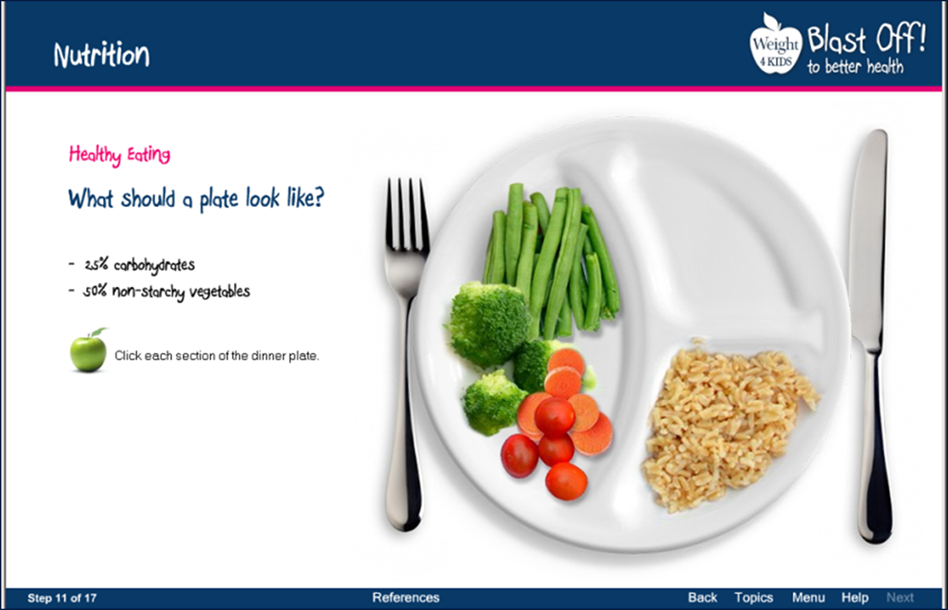
Centre for Population Health Nepean Blue Mountains and Western Sydney Local Health Districts for development of original design and content of the Promoting Healthy Kids resources which formed the basis for the core Module in the Weight4Kids e-Learning program, and also to all the health professionals who provided their clinical expertise into the development of Weight4KIDS.
1. Booth ML et al. NSW Schools Physical Activity and Nutrition Survey (SPANS 2004)- Full Report. Sydney: NSW Department of Health; 2006.
2. O’Connor J et al. Obesity and under-nutrition in a tertiary paediatric hospital. J Paediatr Child Health 2004; 40:299-304.
3. Wake M et al. How training affects Australian paediatricians' management of obesity. Arch Dis Child 2013; 98:3–8.
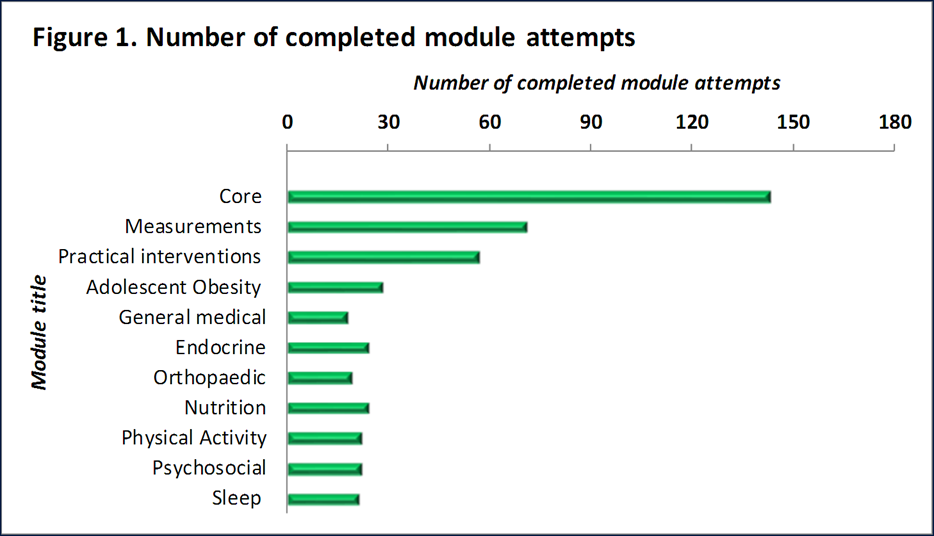
130 completed the core module (Figure 1). Median time to complete was 20 minutes [IQR: 13 to 37]. Participation in advanced modules varied (range: n=18 to 70) (Figure 1) with median completion times across modules ranging from 2-10 minutes. Nursing staff comprised the largest percentage of health professionals completing modules and module evaluation (Figure 2). Over half (55%) of participants were from a non-metropolitan hospital or workforce. Allied health and medical staff participation rates were low (Figure 2).
Weight4KIDS is hosted on the NSW Health website, alongside other e-health programs. The pilot evaluation of Weight4KIDS included a broader group of participants and institutions than initially expected, presumably as a result of spontaneous participation by those accessing the other e-health programs.
In all modules there was a statistically significant (P<0.05; related-samples Wilcoxon Signed Rank Test) improvement in participants’ pre- to post-training knowledge scores (Figure 3). Most participants (range across all modules) indicated module completion: occurred during work time (58% to 84%), was of appropriate duration (81% to 100%) and detail (83% to 96%), and prompted intention to improve clinical practice (74% to 93%).
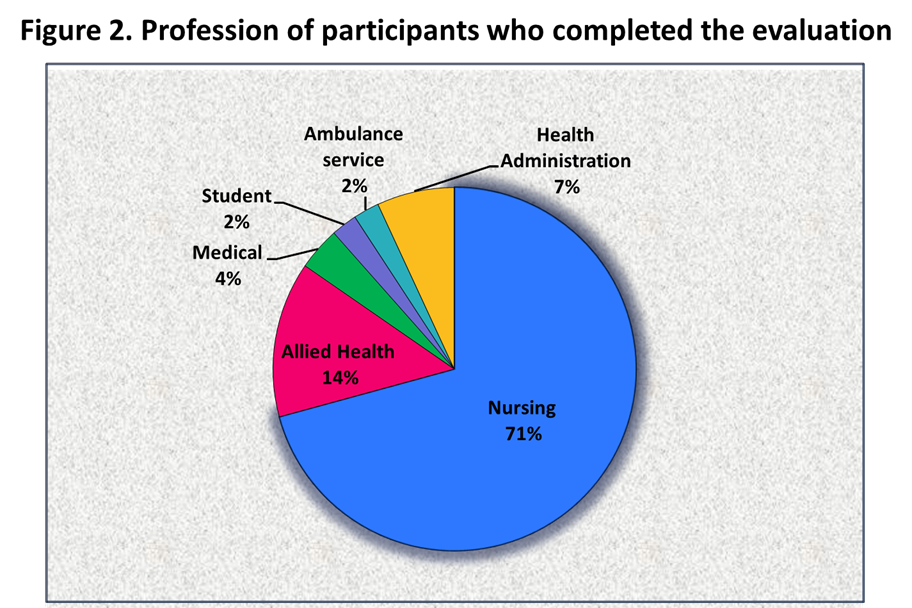
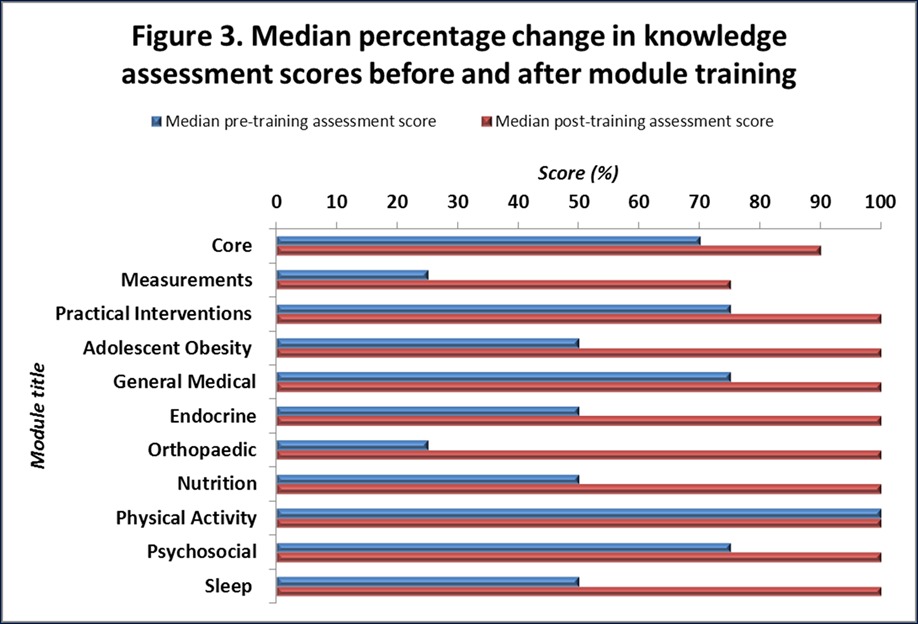
Weight4KIDs improved participants’ knowledge of paediatric obesity management and was highly acceptable to a predominately nursing sample. The results support wider rollout of Weight4KIDs. The poor uptake by medical and allied health staff warrants further investigation.
Interactive e-learning programs are highly acceptable and practical methods to enhance knowledge on paediatric obesity management.
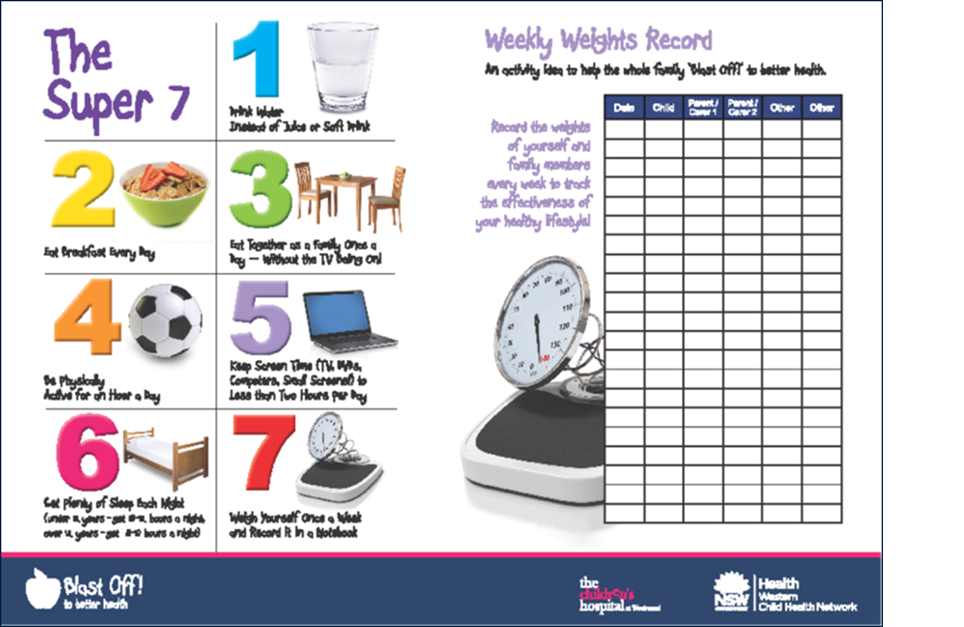
 Send Email
Send Email